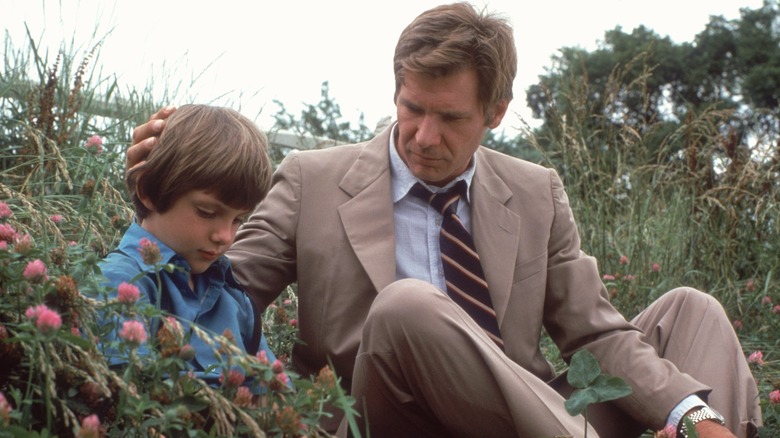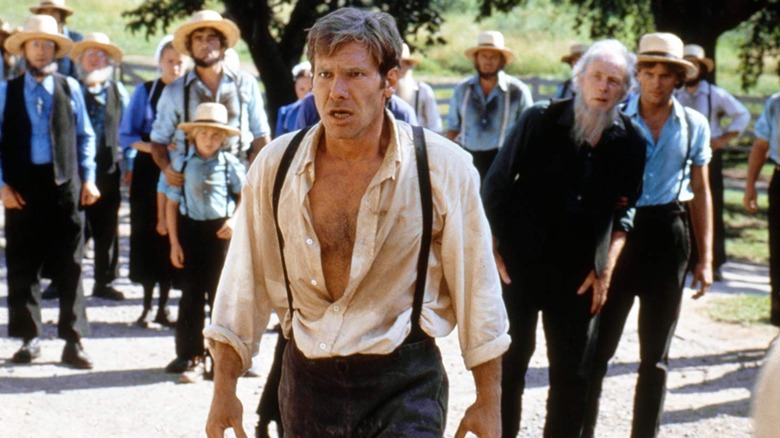The Original Witness Script Was Too 'Stupid' And 'Violent' For Harrison Ford
Peter Weir's "Witness" was a sleeper hit when it arrived in U.S. theaters on February 8, 1985. Back then, the first two months of the moviegoing calendar were dominated by the previous year's holiday season blockbusters and Academy Awards contenders, many of which were expanding from limited release. In 1985, this modestly budgeted crime thriller about a streetwise Philadelphia detective hiding out in a Pennsylvania Amish community was up against the box office juggernaut of "Beverly Hills Cop" and the critically acclaimed duo of "The Killing Fields" and "A Passage to India." The timing of the release indicated a lack of confidence on the part of the studio, especially since Weir's previous movie, "The Year of Living Dangerously," had been a major awards contender (with Linda Hunt winning the Best Supporting Actress Oscar for playing a Chinese-American man).
If "Witness" didn't seem promising coming out of the gate, perhaps that's because it didn't look terribly encouraging going in. The screenplay by William Kelley and Earl W. Wallace was derived from a "Gunsmoke" episode the duo had written in 1970. The project had been rejected by nearly every studio in Hollywood before Paramount put it in its development pipeline. But there was still work to be done. Loads of work.
Bearing witness to a massive rewrite
According to Robert Sellers' "Harrison Ford: A Biography," Harrison Ford was intrigued by the culture clash angle. Having recently completed his run in George Lucas' original "Star Wars" trilogy and his second turn as the adventuring archaeologist Indiana Jones, Ford was eager to take on a more grounded character. But he had yet to prove himself as a box office draw outside of these two blockbuster franchises, which meant his involvement alone wasn't entirely sufficient to earn a green light.
And while Ford was keen on the concept of "Witness," he was not a fan of the screenplay itself. Per Sellers' book, he said, "It was a stupid, overly violent script." But when Peter Weir suddenly became available after his first attempt to adapt Paul Theroux's novel "The Mosquito Coast" fell apart, Ford committed. "I would never have done it if Peter Weir and I hadn't been given the chance to rework it."
This pairing proved propitious. Weir's gift for immersing the audience in strange environments and cultures elevated the film far above its cop flick trappings, while Ford gave his finest dramatic performance to that point of his career. Critics were pleasantly surprised, as were Academy voters, who, nearly a year later, nominated the film for eight Oscars. It won two: one for Best Editing and another for Best Original Screenplay, which went to William Kelley, Earl W. Wallace, and Pamela Wallace, whose "stupid, overly violent" script had been overhauled by the star and his director. As for why Ford and Weir didn't receive credit, that's a whole other story.

